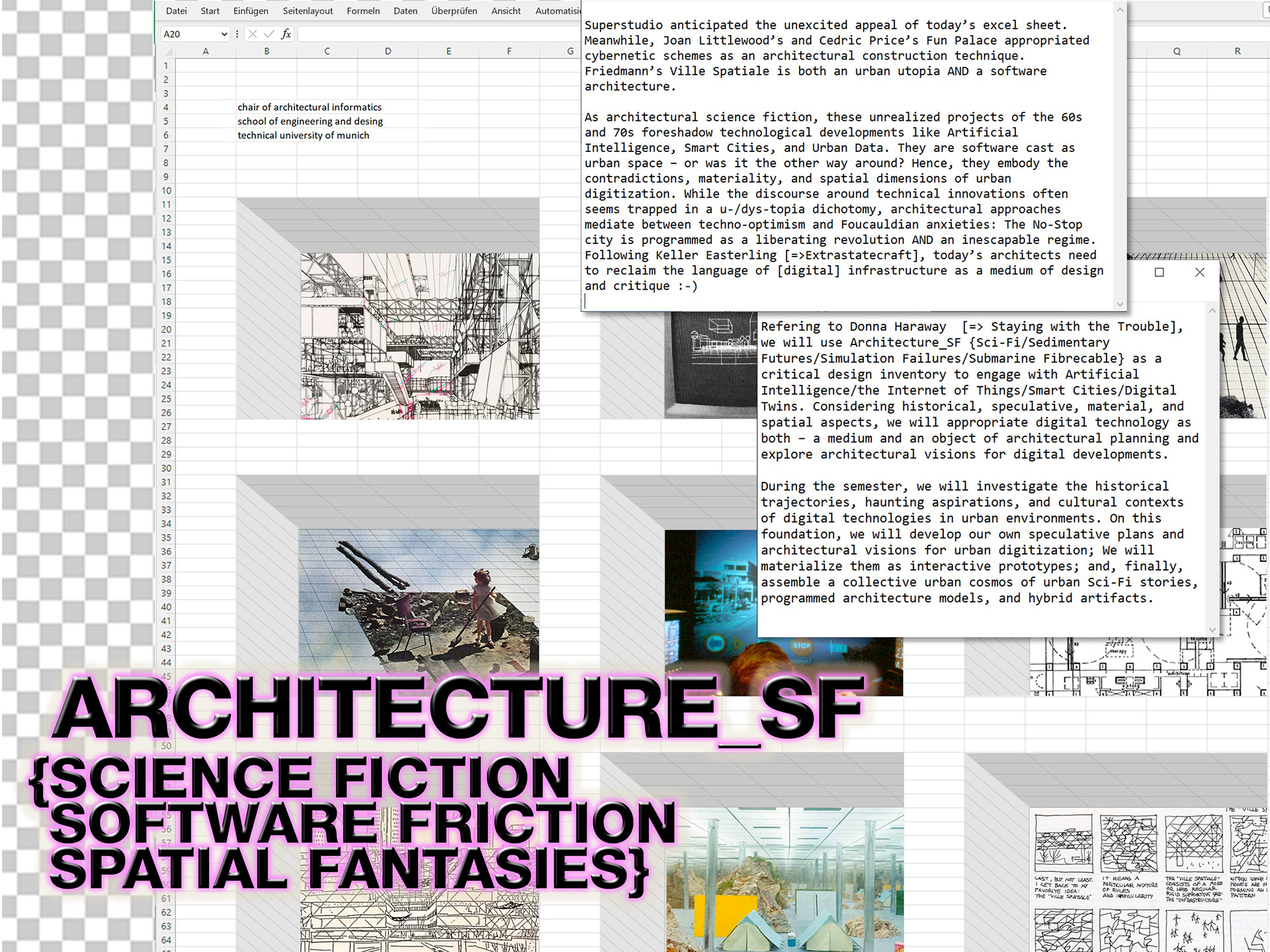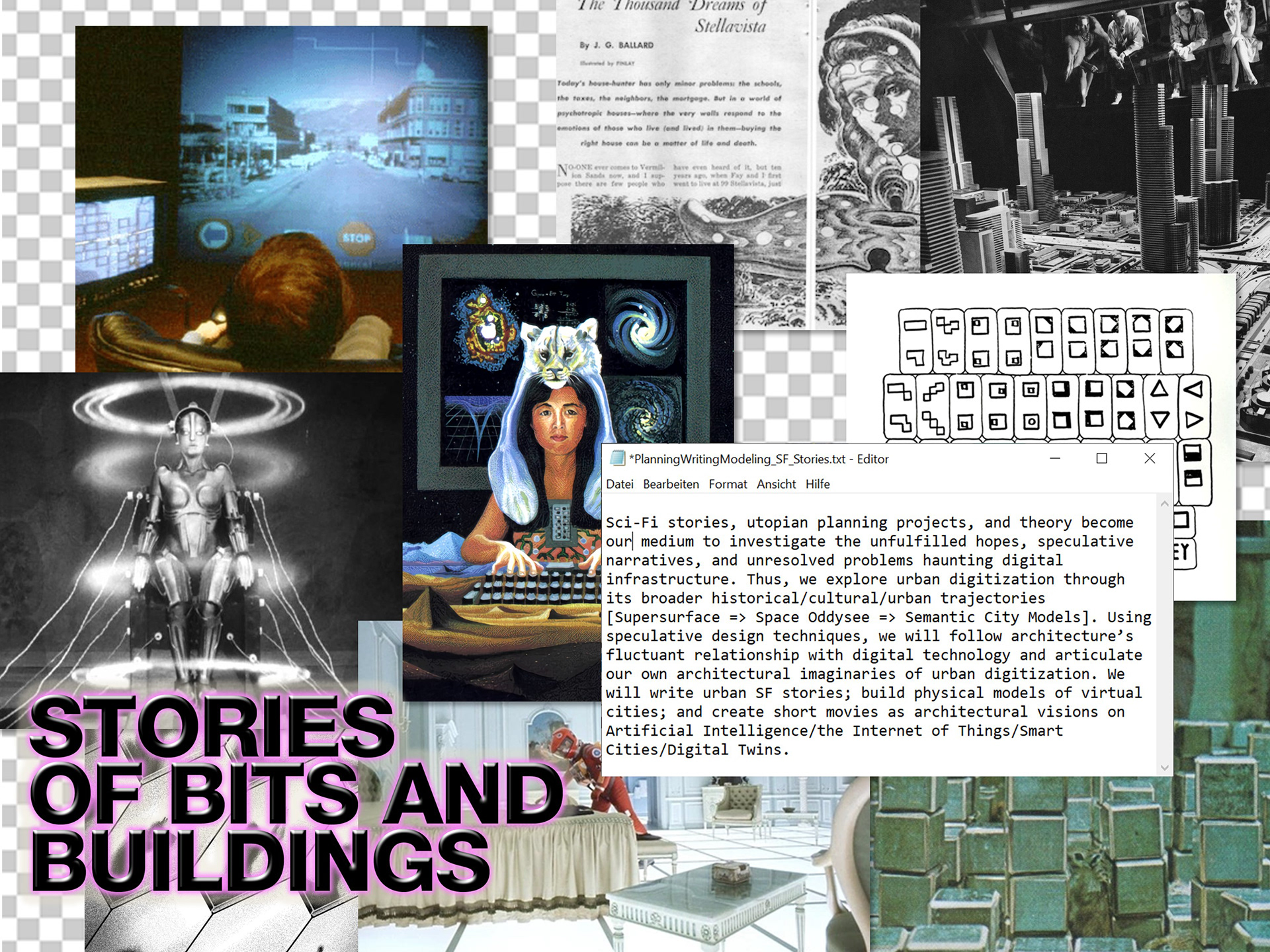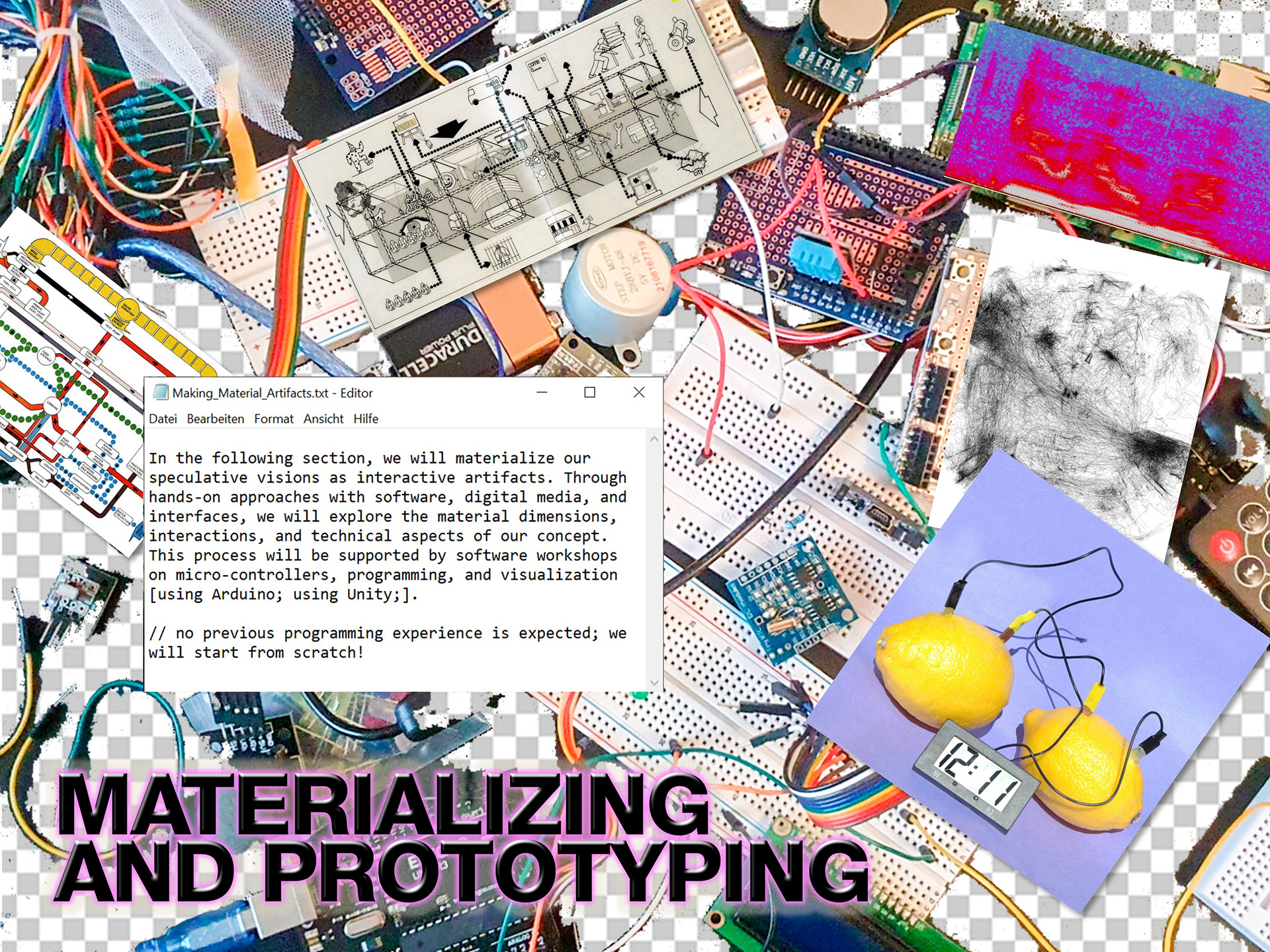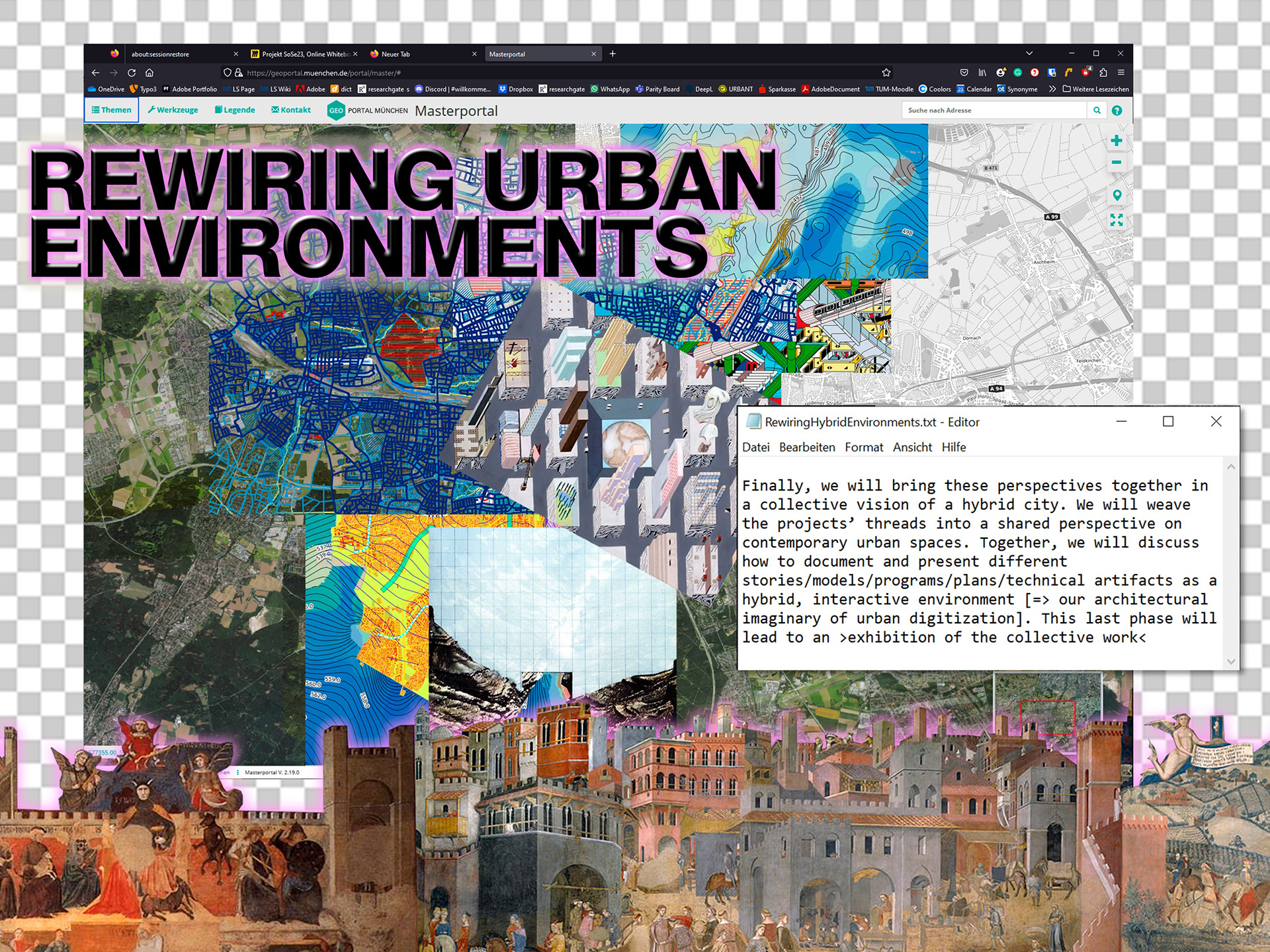Architecture SF
Science Fiction, Software Friction, Spatial Fantasies
Speculative Design Workshops
In collaboration with Ilayda Memis and Ivan Bratoev
At the TUM Chair of Architectural Informatics (Prof. Frank Petzold)
In exchange with the Prof. Nathalie Bredella (Professorship for Architecture Theory, Leibniz University Hannover)
In collaboration with Ilayda Memis and Ivan Bratoev
At the TUM Chair of Architectural Informatics (Prof. Frank Petzold)
In exchange with the Prof. Nathalie Bredella (Professorship for Architecture Theory, Leibniz University Hannover)
Superstudio anticipated the unexcited appeal of today’s excel sheet. Meanwhile, Joan Littlewood’s and Cedric Price’s Fun Palace appropriated cybernetic schemes as an architectural construction technique. Friedmann’s Ville Spatiale is both an urban utopia AND a software architecture. As architectural science fiction, these unrealized projects of the 60s and 70s foreshadow technological developments like Artificial Intelligence, Smart Cities, and Urban Data. They are software cast as urban space – or was it the other way around? Hence, they embody the contradictions, materiality, and spatial dimensions of urban digitization. While the discourse around technical innovations often seems trapped in a u-/dys-topia dichotomy, architectural approaches mediate between techno-optimism and Foucauldian anxieties: The No-Stop city is programmed as a liberating revolution AND an inescapable regime.
Refering to Donna Haraway [=> Staying with the Trouble], we use Architecture_SF {Sci-Fi/Sedimentary Futures/Simulation Failures/Submarine Fibrecable} as a critical design inventory to engage with Artificial Intelligence/the Internet of Things/Smart Cities/Digital Twins. Considering historical, speculative, material, and spatial aspects, we appropriate digital technology as both – a medium and an object of architectural planning and explore architectural visions for digital developments.
During one semester, the participants re-enacted early architectural approaches towards computation (like Friedmann's Ville Spatiale, projects of the Architecture Machine Group, or Superstudio's fictional architectures). Building on speculative narratives and conflicts within these projects, the students extrapolated these visions and critically examined their relevance for architecture today. This engagement resulted in speculative environmental simulations, data-gathering tools, and SF computer games.
The results were exhibited in Pavillon 333 (Pinakothek der Moderne, Munich, 2023) in collaboration with students of Prof. Nathalie Bredella (Professorship of Architectural Theory, Leibniz University Hannover). The Event was accompanied by talks by Jonah Marrs and Damjan Kokalevski.



